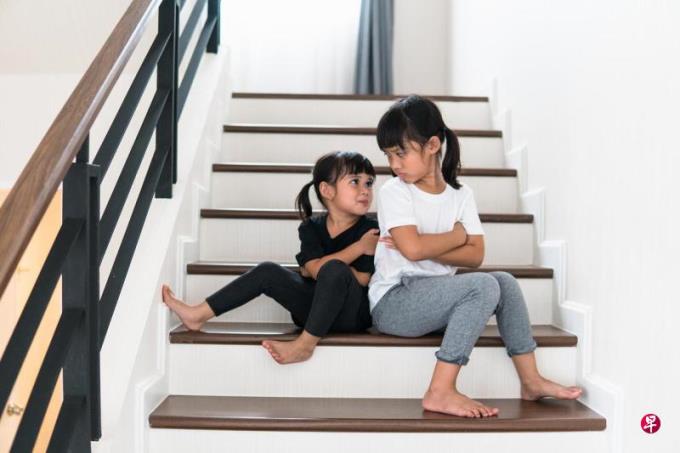
"Elderly Syndrome" is a social and cultural term popular in recent years. It refers to the pressure of the eldest daughter who has been overly responsible at home and a series of psychological problems from this.Not long ago, the Strait Times reported that "FirstBorn Females Speaking Up On Invisible 'Ailment'" (the hidden pain that the eldest daughter was invisible) revealed that the trauma of "eldest daughter syndrome" in Singapore society was also revealed.
Reporters interviewed the elders of many different fields and different ages, and some said that because of the eldest daughter's identity, they would unconsciously become responsible; some said that because of the eldest daughter's identity, they were often accused by their parents, and they were often blamed by their parents and their parents were accused by their parents.It is rarely taken care of; some say that the eldest daughter's identity has made her own standards very high, always pursuing perfection, and always to make role models for siblings ... But among the Chinese groups that are deeply influenced by Confucian culture, the eldest daughterWhile feeling childhood trauma, he also suppressed his feelings because of his understanding of filial piety.When they want to speak for themselves, because of the burden of culture, they often feel tearing and struggle.Do they have the way to heal?
At the end of July this year, several well -known picture book writers in Taiwan were invited to come to Singapore to participate in the "2014 Children's Reading Festival" and speech hosted by the Culture and Education Center. At that time, many people did not expect to listen to a lecture on children's picture books,It can also cure yourself.Maybe all the "eldest girls" with childhood trauma should come to listen to Miya's speech in Taiwan.
What is the eldest daughter in oriental culture?
Miya is a picture book writer and a picture book translator. She has more than 200 Japanese picture books.From 50 years ago, she started with the works of Japanese writer Tsuhi Takio and illustrator Lin Mingzi, which slowly unveiled the typical social problems that women in the oriental cultural circle were facing.The first time I bought Laizi and Lin Mingzi, Jiajia's younger sister disappeared, and Jiajia's sister was sick. What are the eldest daughters in the picture books that are still selling still 50 years ago?They are people who want to go out to help their mothers buy things when their mother is busy; they will lose their sense of honor for "taking care of their younger sisters" as long as they are concentrated on themselves;The beloved things realize the "mother and child integration"; they are people who share their housework and take care of their parents, and are proud of this; they are facing the loss of fear once they want to be themselves, and they will always live in some kind ofPeople in the relationship.
Jiajia's sister became ill in a book. The mother had to go to the hospital to accompany her sister. In the end, the sister also gave her favorite toy to her sister on the sick bed.Miya said that she was the old man in the family. After becoming a mother, she became grateful and distressed to everything she had done for her.Later, when she read this picture book again, she didn't even dare to look at it, because she thought that her sister had given her the most important thing.
Miya said that we once thought that sacrificing for my sister is growth. However, from the perspective of the development of modern children's development, this is not growth, but a retrogression.Children's psychoanalysis master Donald Winnicott once pointed out the importance of "transitional object".Jiajia's sister became ill. The sister's beloved toy is essentially a "transitional object". When the child faces separate anxiety (mother leaves to the hospital with her sister), she is used to appease her empathy.When my sister also gave this important "transition object", it was very distressing, but it was in line with the good sister recognized in our oriental culture.When a "good sister" is in need, it will also give priority to meeting the needs of others.Although Jiajia's behavior is recognized, this behavior is still a retrogression on the road of independence of personality, and returned to the state of "mother and child" -a younger sister who actively stands in the mother's position and share the responsibility of her parents.
Mother subconsciously ignores the needs of the eldest daughter
Mothers in these picture books often subconsciously ignore the needs of the eldest daughter as a child themselves, and often treat the eldest daughter as their own parenting assistant.When the eldest daughter was praised, they would think about their mother's position and live in the direction of their parents.Jiajia in the picture book feels her own utility when she gives her favorite toy to her sister.When the eldest daughter is gradually becoming a praised exemplary sister in the shaping of this social culture, she will also be under excessive pressure.Their personal value seems to be increasingly unimportant, but it will pursue recognition in utility.Be sure to be more useful people, unable to rest for a long time, and will not refuse, often becoming the universal feature of these excessive elderly girls.The Korean psychiatrist Liang Zai and Liang Zaixiong's even pointed out in the book when I didn't know my heart that the eldest daughter's ratio among women who came to the medical health medicine department were relatively high.
In fact, Miya is not to criticize these picture books, but to see the details of these excellent picture books.The reason why these picture books are prosperous is precisely because they move the generations of generations.What she wants to express is that the authors of these picture books are aware that opening a new world is necessary and important for the growth of a child; but at the same time, these authors may not realize how social culture isSilently affects our self -identity.
Those who listen to this speech may think, I am a child of my parents, but when I am a sister, am I still myself?When we take good care of ourselves, we may be more independent and healthy, but when we do this, we must bear the loss of the loss, lose the praise of "good sister", and lose the recognition of the people around me. Can I bear this loss?In other words, do you accept the great adventure of "becoming yourself"?
The picture books 50 years ago, let us see the situation of some women in traditional social culture.Are we still being bound by this culture?
Seeing it is the beginning of healing.Miya said that the person who is the most considerate and responsible in the family was also a child, and he was not able to be a child well, and was forced to grow up by various factors.We have to see that it hurts to return to that person, just like Miya herself will now hurt her elder sister.I am not a mermaid in my sister, and I also deliberately hurt the sister who was emotionally undulating when the sister was born.I hope that all parents now can see the needs of each child.I hope that every adult can see the needs of the person who pays the most.
The author is a former media person and creator of children's books




